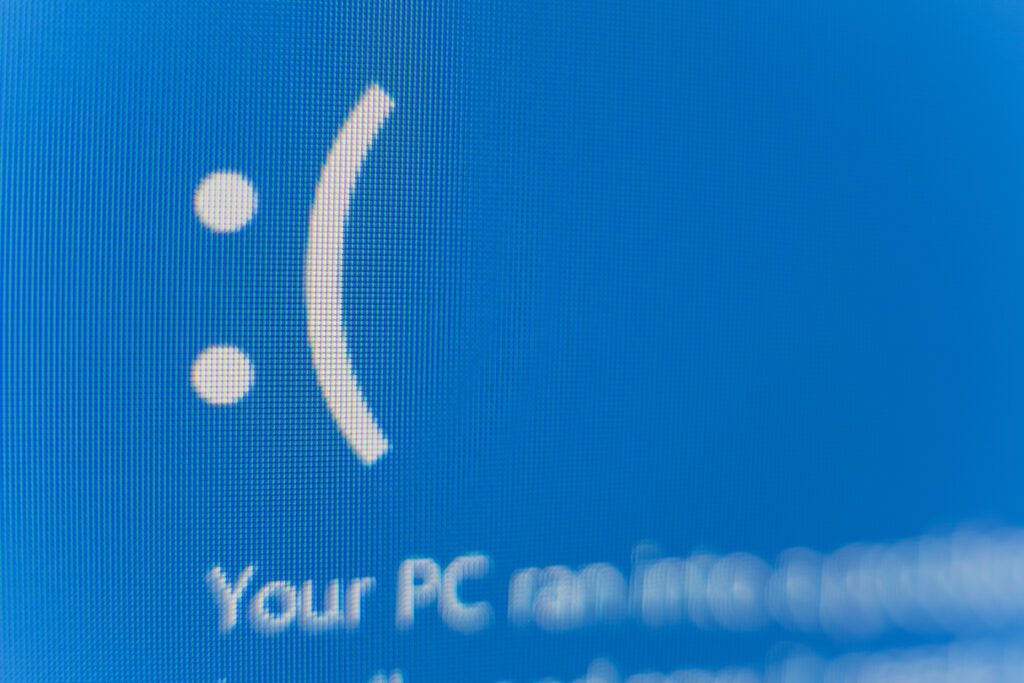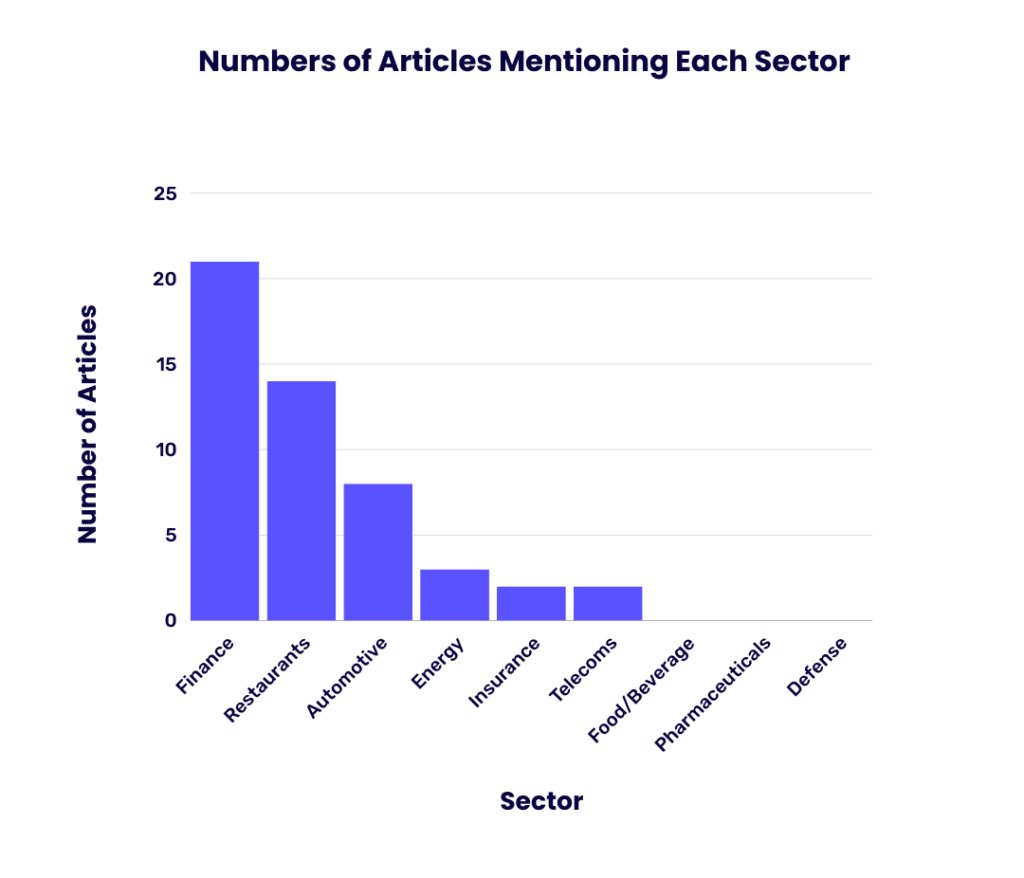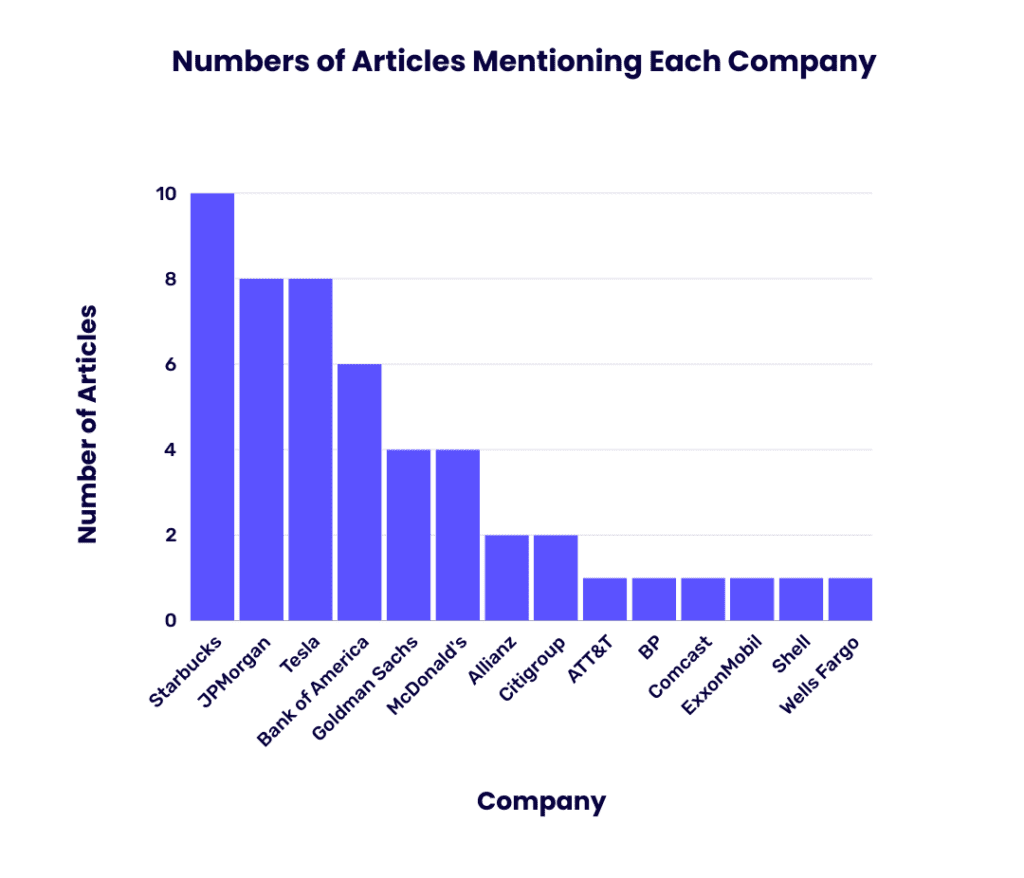
The recent CrowdStrike outage has generated significant media coverage. We examined how various sectors and companies were mentioned to gain insight into the media’s priorities and their brand impact.
In short – and rather unexpectedly – the event had minimal negative impact on most companies’ media coverage, while for some, coverage was actually brand-positive.
Essential Services and Media Focus
We analyzed coverage of the CrowdStrike story across all the sectors in our Benchmark dataset, which tracks 49 global organizations across 9 industries, and found surprisingly low volumes across all of our non-Tech sectors.
However, our data shows the Finance sector was mentioned most out of our tracked industries, following a broader pattern where coverage gravitated toward sectors where disruption was most palpable to the public, such as everyday banking services.

Most coverage about the CrowdStrike outage focused on disruptions to time-sensitive essential public services like transport, healthcare and emergency services. A prominent example in transportation is Delta, who even 5 days after the incident is still having to cancel flights due to the issue, generating sustained media coverage as a result. Nonessential businesses, on the other hand, were generally spared scrutiny.
Starbucks: The Unexpected Essential Service
A deeper dive into the data by company surfaced Starbucks as the most mentioned brand, with 10 articles covering the impact of the outage on its services. This is striking given that Starbucks is a coffee retailer, not typically associated with critical infrastructure or essential services. The high media attention highlights an interesting perspective: Starbucks has become a significant part of many people’s daily lives, to the extent that disruptions to its service are considered noteworthy.

The media focus and portrayal of Starbucks as an essential service highlights how deeply the brand is embedded in daily life. Articles often included quotes from social media users that suggested that, for many, a day without their Starbucks coffee is a significant inconvenience, akin to disruptions in banking or transportation. In fact, in some instances, Starbucks closures were mentioned in the very same headline as these more essential services.
Mentions such as these were largely lighthearted in nature, with social media commentary from customers more so lamenting that their typical coffee routine was disrupted rather than placing any sort of blame on Starbucks itself. This spotlight on Starbucks generated a narrative that the brand is crucial for daily functioning, a testament to its strong market presence. For Starbucks, therefore, the CrowdStrike outage turned out to be brand-positive.
Preparing for the Next Outage
Communicators can expect that if a similarly widespread outage occurs in the future, it is unlikely to affect the majority of brands’ media reputation. Disruptions to time-sensitive essential services will draw most of the negative media attention, while businesses offering non-essential or non-time-sensitive products and services can fly under the radar.
For some lucky companies, a short disruption to services could even remind the public how beloved and essential their brand has become. This phenomenon underscores the importance of building a strong brand presence and fostering deep customer connections which can act as a buffer during crises such as this one.
To learn more about our research, contact us here.